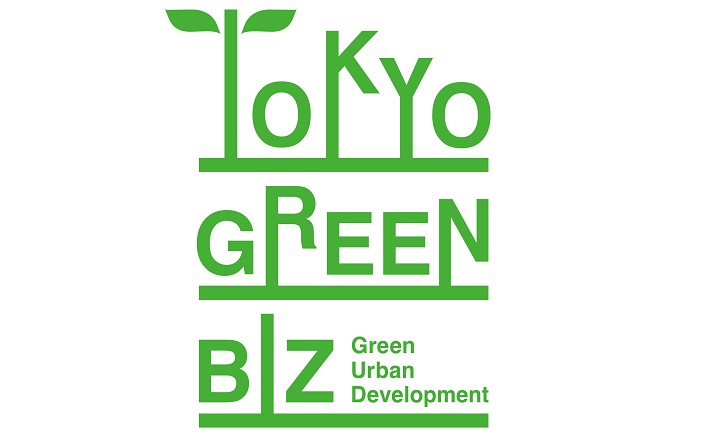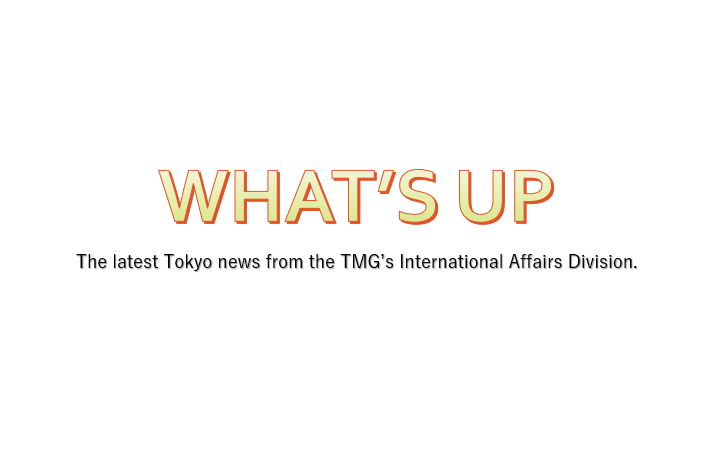Government
Efforts to "Prevent Ivory Products From Being Taken Overseas" by the Tokyo Metropolitan Government
- The Tokyo Metropolitan Government established an Advisory Council on the Regulation of Ivory Trade in January 2020. With the Olympic and Paralympic Games Tokyo 2020 serving as a trigger, Tokyo has been cooperating with the national government and business operators to tackle the illegal handing of ivory, and has widely raised awareness both domestically and internationally.
- As a result of these efforts we are proud to have had no reports of large scale illegal ivory trade throughout the Tokyo 2020 Games.
- Tokyo will continue to fulfill its responsibility as a safe and sustainable city.
Regulations on ivory trade in Japan
- International trade in ivory and ivory products is restricted by the Washington Convention and prohibited in principle by the Foreign Exchange and Foreign Trade Law from bringing into or taking out of Japan.
- In Japan, trading of ivory products is prohibited in principle by the Act on Conservation of Endangered Species of Wild Fauna and Flora. However, as an exception, transactions are possible in the case of obtaining ivory products from businesses that have been registered as Special International Species Business Operators, and in the case of exchanging whole tusks that have been registered in advance with the registration slip attached.
- All registered business operators are obligated to keep a detailed data inventory, including information such as transaction records and traceable data on cut pieces.
>Ministry of the Environment's Web page
Efforts by the Tokyo Metropolitan Government
- In response to international concerns about Japan's ivory trade, the Tokyo Metropolitan Government has set up the " Advisory Council on the Regulation of Ivory Trade" to study how ivory trading should be conducted in Tokyo.
- The Tokyo Metropolitan Government, as the host city of the Olympic and Paralympic Games Tokyo 2020, has decided to implement measures to prevent the illegal transportation of ivory products overseas by cooperating with the national government and business operators, taking into consideration the opinions of the expert panel.
Effort 1: Prevention of Illegal Transportation to Overseas
In order to thoroughly prevent the sale of ivory products that may be taken overseas, we are requiring the following points from registered businesses in Tokyo.
- Make it known at the sales counter that "taking the product overseas is prohibited in principle."
- Confirm with prospective purchasers that they intend "not to take the product overseas."
- Refrain from selling when the product may be taken overseas, such as when the prospective purchaser is a visitor from a foreign country.
Effort 2: Raising Awareness
In cooperation with the national government (Ministry of Economy, Trade and Industry; Ministry of the Environment; Customs, etc.), we have been raising awareness among people both in Japan and overseas in order to make it thoroughly known that "illegally taking ivory products, etc. out of Japan to overseas is not allowed." Posters and leaflets were displayed/ distributed in stores, airports, train stations, public facilities, media/ press centers for the Tokyo 2020 Games and more.
Report of the Advisory Council on the Regulation of Ivory Trade
In January 2020, the Tokyo Metropolitan Government set up the "Advisory Council on the Regulation of Ivory Trade" to study how ivory trading should be conducted in Tokyo.
On March 29, 2022, at the 7th Council's Meeting, a report summarizing the discussions was compiled and recommendations were made to the Tokyo Metropolitan Government.
For the purpose of contributing to the Tokyo's future efforts to ensure proper ivory trade, this report provides an organized summary of discussions conducted by the Advisory Council during the period from January 2020 to March 2022, regarding, among other things, the current situation of, and challenges surrounding, ivory trade, and measures to ensure proper ivory trade.
- Recommendation 1: Urging the national government to make nationwide efforts under law towards more strict regulations on ivory trade.
- Recommendation 2: Continuing the efforts to prevent overseas export of ivory made by using the Tokyo 2020 Games as a momentum, to prepare for recovery in the number of foreign tourists to Japan.
- Recommendation 3: Considering legal or other effective means to prevent contributions to poaching and illegal trade while protecting ivory culture and arts.
See here for the details of the Advisory Council meetings (Japanese Only)
report(English)
summary(English)
Request to the National Government
Since there are limits to the measures that can be taken by local governments to thoroughly manage ivory trade, the Tokyo Governor has made requests to the national government to strengthen border measures and to enhance publicity and awareness of ivory trade regulation both domestically and internationally.
(Photo: Tokyo Governor Koike made direct request to the then Minister of the Environment Koizumi in October 2020)
- August 2019
- Promote a thorough understanding of and adherence to laws and regulations relating to business operators.
- Strengthened border controls as part of efforts to ensure a crackdown on smuggled ivory goods.
- Increased awareness among business operators and purchasers regarding the relevant laws and regulations to prevent violations of the law.
- October 2020
- Strengthening of the national government's measures to ensure proper and effective enforcement.
- Cooperation and collaboration with the Tokyo Metropolitan Government in the review of ivory trade regulations and their implementation.
- October 2022(PDF:461KB)
- Reinforcement of border controls to eradicate the illegal transportation of ivory both in and out of the country.
- Further collaboration with the Tokyo Metropolitan Government to promote greater awareness, both in Japan and overseas, and understanding of Japan's ivory regulations; namely, the illegality of taking unauthorized items out of the country. Etc.
About CITES CoP19
The 19th Conference of the Parties (CoP19) to CITES (Convention on International Trade in Endangered Species of Wild Fauna and Flora) was held in the Republic of Panama from November 14 to 25, 2022. Tokyo took this opportunity to communicate our initiatives.
Recent Developments
From 2021 through 2024, the Tokyo Metropolitan Government requested the cooperation of approximately 1,500 businesses and facilities in Tokyo that handle ivory products in efforts to prevent their export overseas.
As part of these efforts, businesses were asked to use a confirmation form created by the Tokyo Metropolitan Government at sales counters to verify that prospective purchasers have the intent “not to take the product overseas illegally.”
Beginning in 2025, initiatives requesting the use of this form will be carried out nationwide by Japan’s Ministry of Economy, Trade and Industry.







Recommended for You
New Year Countdown 2026: Tokyo Dazzling With Light, Sound and Projection Mapping
December 26, 2025
Beating the Heat in Summertime Tokyo: Mountains, Islands, Water Sprinkling and More
August 4, 2025
Tokyo's First Dark Sky Park: A Visit to the Beautiful Nature of Kozushima
March 7, 2025
Admire Fall Colors Just 30 Minutes from the Center of Tokyo: How to Enjoy Inokashira Park
February 21, 2025
Lighting Up the Tokyo Sky with Wonder
February 11, 2026
Small Rain Gardens and Growing Green Infrastructure in Setagaya
January 30, 2026
Tokyo and the WBA Sign MOU on OpenRoaming Wi-Fi Partnership
January 28, 2026
A Fourth-Generation Confectioner on the Charms of Tokyo's Four Seasons and Wagashi
February 13, 2026
Making Tokyo's Public Wi-Fi Seamless with OpenRoaming
January 26, 2026
Tokyo's Iconic Station Buildings: Their Appeal and Highlights
February 6, 2026